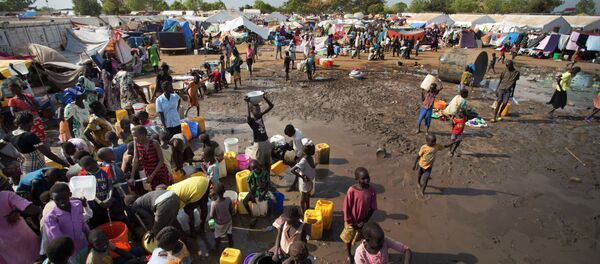"It is our assessment that an increase of 500 troops and 600 police personnel would allow us to provide the support required of the Ceasefire and Transitional Security Arrangements Monitoring Mechanism and enhance such protection of civilians’ activities," Ladsous told the UN Security Council on Wednesday.
A lack of involvement on the part of the UN Security Council and international partners in the situation in South Sudan could lead to a loss of progress in the peace process, Ladsous warned.
"The Security Council, African Union, IGAD Plus, and countries of the region have a critical role to play in maintaining pressure on the parties to implement their agreement, building its political momentum and demonstrating the benefits of peace. No amount of troops or police can replace the political will required of the leaders of South Sudan to bring an end to their conflict," Ladsous stressed.
In December 2013 South Sudan President Salva Kiir accused then-Vice President Riek Machar of plotting a coup, which sparked clashes between government forces and rebel groups.
In August, Kiir signed a peace agreement with the country’s opposition faction after the United Nations threatened to act immediately if Kiir did not sign the deal. Members of the South Sudan National Legislative Assembly and the Liberation Council of the Sudan People’s Liberation Movement (SPLM) in Opposition, led by Machar, endorsed the Agreement on September 10.
IGAD, an eight-country trade bloc in Africa, as well as the United States, the United Kingdom, China, EU member-states and other countries (forming IGAD Plus) held a meeting on South Sudan on September 2015 stressing that the human rights situation in South Sudan is still dire despite the fact that over 20 months of civil war in the country have come to an end.



